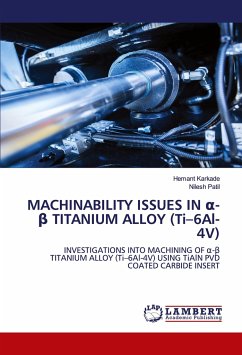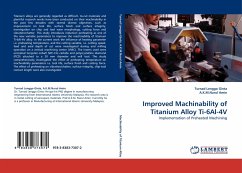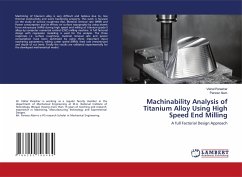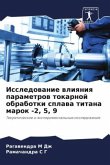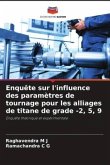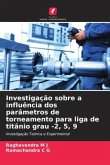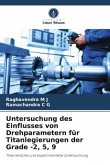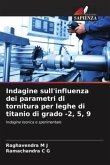In the machining of titanium alloys productivity is adversely affected by rapid tool wear as a consequence of high cutting zone temperature. Conventional cutting fluids are ineffective in controlling the cutting temperature in the cutting zone. In this work, an attempt has been made to investigate the effect of compressed CO2 gas when it is applied to the rake surface of the cutting tool insert during the turning of the Ti-6Al-4V alloy. The influence of compressed CO2 gas cooling on the cutting forces, surface integrity (surface roughness and microhardness beneath the machined surface) have been investigated and compared with dry machining.
Bitte wählen Sie Ihr Anliegen aus.
Rechnungen
Retourenschein anfordern
Bestellstatus
Storno

